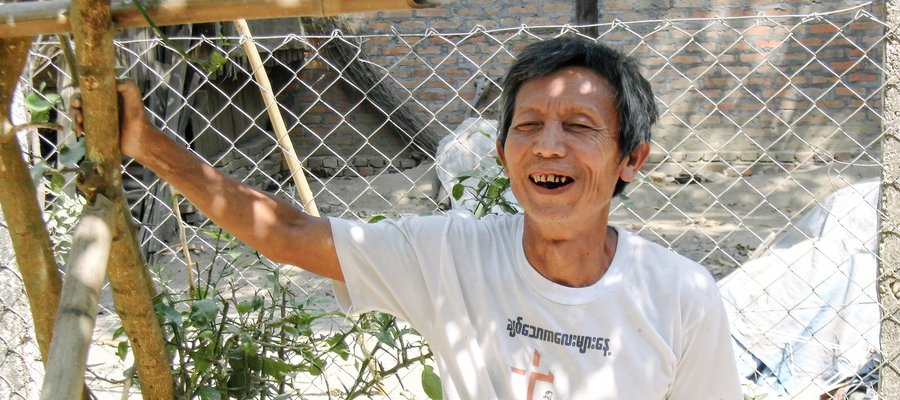3 ways that putting persons affected by leprosy at the centre of the conversation will defeat leprosy stigma

Blog by Mathias Duck, Global Advocacy Lead at The Leprosy Mission
Some days, I feel very optimistic about our common goal of defeating leprosy stigma. I hear about many great initiatives happening all over the world. However, some days are discouraging. Especially when I hear about all the barriers that persons affected by leprosy are still facing: discriminatory laws and practices, lack of opportunities in education and work, lack of access to health, participation and inclusion. The pandemic has only exacerbated most of these issues.
What needs to happen to change this situation?
We need to put persons affected by leprosy at the centre of all of these conversations. It is not a magic answer, a silver bullet that will solve all our problems, but it is the only way we’ll make real progress.
They know what it feels like and they have proven to be the most effective advocates for change. organisations of persons affected by leprosy have been able to advance their rights and improve their lives significantly in the face of adversity and discrimination.
Governments need to stop hearing from NGOs and start hearing from persons affected by leprosy
Governments need to treat this as a broad issue because it is related to public health, mental health, disability, poverty, inequality, gender, human rights, livelihood, and many more issues. It needs to be addressed in a way that takes this complexity into account.
Representatives of organisations of persons affected by leprosy need to be at the table when these issues are discussed and decisions are made. Their voices needs to be taken seriously if the government programmes aim to be effective. Beyond that, persons affected by leprosy have proven to be very effective in many of the crucial tasks in leprosy fieldwork such as active case finding, contact tracing, peer support, adherence to treatment, disability prevention, reaction management, among other things. In short: the involvement and participation of persons affected by leprosy needs to increase significantly
NGOs have to be driving capacity building and identifying opportunities for engagement
NGOs can support this process by lobbying the government to give participation to persons affected by leprosy. The reports of the Special Rapporteur for the rights of persons affected by leprosy are a crucial tool for local and national advocacy in this respect. NGOs can also contribute to the strengthening of organisations of persons affected by providing financial and technical support for training and capacity building, logistical support, among other things. In this process it is crucial that the organisations of persons affected by leprosy maintain their independence and their agency. NGOs need to keep an open mind and a willingness to hear criticism from persons affected and learn from them.
The voices of persons affected by leprosy need to be heard by the public
The general population needs to see and hear persons affected by leprosy. They can support them by amplifying their voices and hold government officials accountable to their duties. We also need your voices, your talents, your expertise, your skills, your passion and whatever you can bring to this fight. However, please do remember that the most important attitude is to listen and learn from persons affected by leprosy. If you want to help, they will tell you how you can be helpful.
We all need to work closer together and we need to work smarter. Only by working together diligently and strategically to lift the voices of persons affected by leprosy may we may dare to dream that leprosy stigma will be defeated.